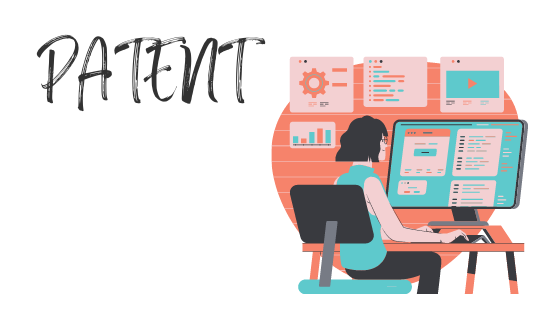It’s true that just about anyone can get a patent. If you’re sitting on a little computer-related invention you’d like to patent and it’s truly a new idea or new technology – and non-obvious – getting a patent shouldn’t be difficult. Most persistent and hard-working developers can patent computer hardware or computer aids themselves or they could have any experienced patent attorney write a patent application. Over 100,000 US patents are issued yearly as proof that a patent is not that difficult to get.
It isn’t true that a patent on your work will automatically bring you sales and wealth. A patent isn’t a magic bullet. Making money from your patented hardware or aid involves much more than having a great idea and a patent on that great idea – That accounts for the scarcity of millionaire computer techies.
Turning a patent into money requires a recognition of – and the willingness to follow – proven business-building principles. There are five basic steps to taking a new development from the idea stage to the money stage. Note that patent application is only one part of the forth step as described on https://www.companionlink.com/blog/2021/12/the-benefits-of-patent-services-from-inventhelp-experts/.
Identify a Small Market Niche
Know your target. When you shoot at everyone, you hit no one. When you have an identifiable target, it’s easier to aim and hit something. Finding your niche takes the mulling and milling out of the marketing procedure.
Find a Rich Uncle
Or his equivalent, if you don’t have deep pockets yourself. The reasons are obvious, but many developers are convinced they can operate on a shoestring. I give them the get-real list you see below. If your really think the computer industry can’t live without your idea and you’re serious about making money from it, you need big bucks to:
- Build prototypes and conduct beta tests
- Build an inventory
- Buy product liability insurance- advertise
- Train distributors
- Attend trade shows
- Pay the experts
- Exists for at least one year start up phase
Determine How Your Product is Different
Who are your direct competitors? Who are your indirect competitors, those who offer a product which will accomplish the same thing but may not be called the same thing? How will you distinguish your product from theirs? Your must be better in some way – faster, cheaper, smarter, smaller, larger, etc. – than your competitor’s products.
Build Your Team of Experts
You need subcontractors who know what they’re doing. Don’t try to learn their businesses; you have enough to do as the developer/general contractor.
You need a:
- Marketing coordinator
- Advertising/graphics agency
- Packager
- Attorney (corporate attorney to create an entity, tax attorney and CPA to keep the government in check, securities attorney to raise money, and patent attorney to file patents, copyrights, and trademarks).
- Bookkeeper (to keep score)

Wait
It usually takes one to three years to see a return on you investment. The annals of failed businesses are filled with inventors and developers who were certain they would see a serious payback in only months and were depending on their hunch to make the house payment and buy the kids’ Nikes and McDonald’s burgers. They were wrong. If you don’t have time to wait for ROI, do quit your day job!
Here’s a true story illustrating the importance of these five steps and how unimportant a patent can sometimes be. While this story is from another industry, the principles hold true in the computer industry as well.
A client invented a simple metal disc to be installed next to the brakes on four-wheel-drive vehicles. It was to keep dust off tires, so he called it Kleen Wheels. The PTO said his invention was too simple and denied the patent. He trademarked the name and manufactured anyway.
Through a direct mail campaign to 20,000 auto dealers, he made hundreds of thousands of dollars in sales. As he developed more styles, he developed more hole combinations. At that point, we filed for a patent on the hole patterns of his discs and received it. (yes, he has a patent on sets of holes.) His product made money, not because of a patent, trademark, or copyright, but because he followed all five steps.
When an entrepreneur patents a product and tries to license it to the big boys, his patent is scrutinized by the big-boy’s attorneys, most of who have at least 20 years of experience. If there’s a way to destroy a patent, they find it. A do-it-your-self patent is easy pickings. All his hard work is lost, and his patent is useless because he saved a few dollars in legal services.
Is a patent a magic bullet? Nope, and thinking so overestimates a patent’s ability to make you rich. Rigorously implement the other business steps I’ve listed if you want your development to make money.
Never underestimate the importance of your patent’s ability. Get an experienced patent attorney who can write a patent application that will withstand the magnifying-glass inspection. A patent is the only legal monopoly on technology in our free society. The more valuable the technology of your invention, the more valuable your patent. (For a low-tech invention, a patent usually serves as insurance against well-heeled copycats who have something to lose in litigation.)
Ready to make serious money on your computer development? Get a patent. But remember that although a well-done patent is definitely a bullet you want in you six-shooter, it isn’t a magic bullet. Read more on – How do you patent an idea with InventHelp.


